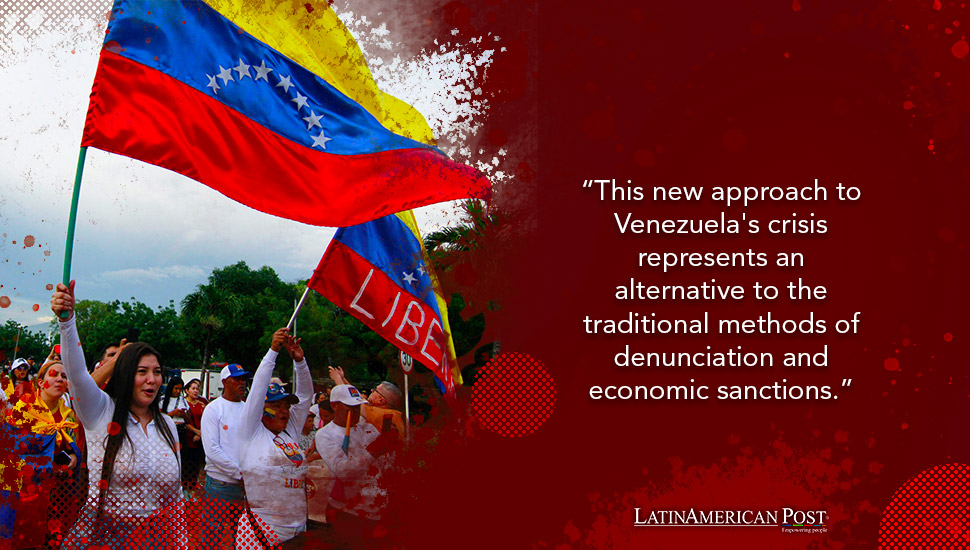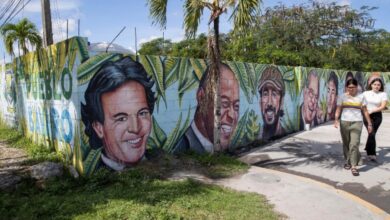Latin America’s Left Shifts Stance on Venezuela’s Election Crisis

Amid accusations of fraud in Venezuela’s presidential election, Latin American leftist leaders, with courage and conviction, advocate for transparency and negotiation, signaling a significant shift in regional diplomacy.
The declaration of Nicolás Maduro as the winner of the Venezuelan presidential election last week sparked immediate outcry and accusations of fraud. Maduro, who trailed significantly in many polls, faced criticism when the National Electoral Council (CNE) failed to provide the legally required access to voting breakdowns. Despite the heated rhetoric from supporters of both Maduro and opposition candidate Edmundo González Urrutia, left-leaning governments in the region have refrained from taking sides, marking a shift from their historical alliances.
Governments in Brazil, Colombia, and Mexico have led the call for Venezuelan electoral authorities to release voting tallies from each electronic voting machine but have avoided accusing Maduro of fraud. This strategic approach, in contrast with their past positions, represents a calculated move to facilitate a democratic transition in Venezuela through negotiation rather than confrontation. This shift may provide a way through the crisis, highlighting a departure from the ideological commitments of the past “pink tide” of leftist governments that dominated Latin America in the early 2000s.
A New Diplomatic Strategy
Brazil’s president, Luiz Inácio Lula da Silva, exemplifies this mediating role on the world stage with his “active nonalignment” diplomacy. This approach aims to further the economic concerns of developing countries without aligning with any significant power in the current global tensions. Lula’s strategy, adopted by other regional leftist leaders, seeks to bring Venezuela’s government and opposition parties back to the negotiating table.
If successful, this strategy will affirm Lula’s “third way” diplomatic approach, which promotes economic development and political stability without taking sides in international conflicts. This non-confrontational stance could also serve as a moral compass in a region where democracy faces threats from elected leaders’ authoritarian tendencies. It may help counter the rise of extreme-right movements that endanger democratic values in Latin America.
This new approach to Venezuela’s crisis represents an alternative to the traditional methods of denunciation and economic sanctions. While the Biden administration in the United States supports negotiation efforts, it unilaterally recognized González as the winner of the election, diverging from the stance of Latin American leftist leaders. This kind of posturing has often provided cover for authoritarian moves. Still, the support of Russia and China for Maduro complicates the situation, potentially pulling the region into more significant international conflicts.
Breaking from the Past
Leftist leaders in Latin America have historically shown a soft spot for Cuba and have often refrained from entirely denouncing democratic backsliding in Venezuela. This tolerance is rooted in the Cold War-influenced bilateral tradition of differentiating between left-wing and right-wing authoritarianism. However, recent statements by leaders such as Lula, Colombia’s Gustavo Petro, Mexico’s Andrés Manuel López Obrador, Chile’s Gabriel Boric, and former leaders like Michelle Bachelet and Cristina Fernández de Kirchner indicate a significant shift.
These leaders’ pushback against Maduro’s election fraud allegations highlights the growing gap between leftist democracies and authoritarian regimes in Latin America. This shift partially responds to a generational turnover, as today’s young voters, raised during the pink tide period, prioritize issues like climate crisis, social justice, and reproductive health over ideological battles. The leftist leaders’ statements also hint at a new manifesto for Latin America’s left, emphasizing democracy and social justice.
Petro and Kirchner, invoking Hugo Chávez’s legacy, have called for Maduro to publish detailed election results while highlighting the detrimental effect of U.S. sanctions on Venezuelan democracy. This stance reaffirms their historical anti-imperialist positions and emphasizes the importance of transparency and accountability in governance.
The Path Forward
The region’s right-wing leaders have highlighted Maduro’s human rights abuses but often overlook similar actions by their ideological allies. For example, Argentina’s president, Javier Milei, criticizes Maduro but ignores human rights violations in El Salvador under President Nayib Bukele. This inconsistency weakens their position in addressing the crisis in Venezuela.
The new stance of Latin American leftist leaders represents a moral line consistent with their professed ideology. How they respond to increasing government repression in Venezuela will test this shift. Engaging Maduro’s government is crucial for truly accounting for the election results and addressing the crisis.
Also read: Protests Erupt in Venezuela After Disputed Election Results
Latin America’s leftist leaders’ response to Venezuela’s election crisis signifies a significant shift in regional diplomacy. By advocating for transparency and negotiation, they aim to foster a democratic transition in Venezuela while maintaining a balanced and principled approach. This strategy, if successful, could significantly strengthen democratic values in the region and counter the rise of authoritarian movements, ensuring a more stable and just political landscape for Latin America.





